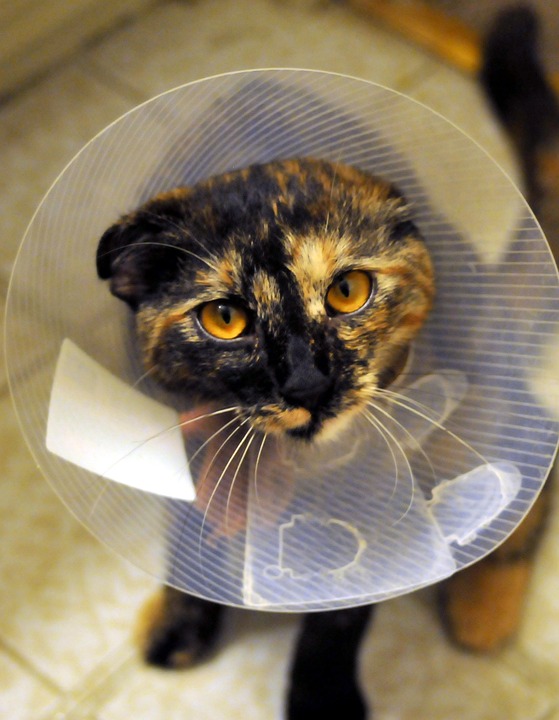
Kitten Health 101: Recognizing Signs of Illness in Young Cats
Welcoming a new kitten into your home is an exciting and joyous occasion. These playful, curious creatures quickly become beloved members of the family. However, just like any young animal, kittens are susceptible to various health issues as they grow and develop. Recognizing the early signs of illness in kittens is crucial for ensuring they receive timely veterinary care and lead a healthy, happy life. This comprehensive guide provides valuable insights and practical advice for both new and experienced cat owners.
Understanding Normal Kitten Behavior and Appearance
Before identifying potential signs of illness, it’s important to understand what constitutes normal behavior and appearance in kittens. Healthy kittens are typically energetic, curious, and playful. They should have a healthy appetite, a sleek, shiny coat, and clear eyes and ears. Their gums should be pink, and they should breathe quietly without any wheezing or coughing.
Normal Vital Signs
- Temperature: A kitten’s normal body temperature ranges from 100.5°F to 102.5°F (38°C to 39.2°C).
- Heart Rate: A normal heart rate for a kitten is between 120 and 140 beats per minute.
- Respiratory Rate: Kittens typically have a respiratory rate of 20 to 30 breaths per minute at rest.
Common Signs of Illness in Kittens
Kittens are vulnerable to a range of illnesses, some of which can become serious if not addressed promptly. Here are some common signs of illness to watch for:
Changes in Appetite or Thirst
A sudden increase or decrease in appetite or thirst can indicate a variety of health issues. While it’s normal for kittens to have varying hunger levels as they grow, persistent changes should be noted and discussed with a veterinarian.
Lethargy
Healthy kittens are usually active and playful. Lethargy, or a noticeable decrease in energy levels, can be a sign of illness. If your kitten is sleeping more than usual and seems disinterested in play, it’s time to consult a vet.
Vomiting and Diarrhea
Occasional vomiting or diarrhea might not be cause for alarm, but frequent or severe episodes could indicate a more serious issue, such as a gastrointestinal infection or ingestion of a toxic substance.
Respiratory Issues
If your kitten is coughing, sneezing, or showing signs of difficulty breathing, it might be suffering from a respiratory infection. Watch for nasal discharge, which can be clear, yellow, or green.
Changes in Urination
Frequent urination, difficulty urinating, or blood in the urine are signs that require immediate veterinary attention, as they could indicate a urinary tract infection or other serious conditions.
Skin and Coat Changes
A healthy kitten’s coat should be smooth and shiny. If you notice bald spots, excessive scratching, or dull and flaky fur, there might be underlying health issues such as parasites or allergies.
Eye and Ear Discharge
Discharge from the eyes or ears, redness, or swelling can indicate infections that require veterinary care. Keep an eye out for kittens rubbing their eyes or shaking their head frequently.
Preventative Health Measures
Preventing illness in kittens is often easier than treating it. Here are some preventative measures to help keep your kitten healthy:
Vaccinations
Ensure your kitten receives all recommended vaccinations. These help protect against common infectious diseases such as feline distemper, calicivirus, and rabies.
Regular Vet Check-Ups
Schedule regular veterinary check-ups to monitor your kitten’s growth and development. These visits allow for early detection of potential health issues and ensure vaccinations are up to date.
Parasite Control
Implement a parasite control program to protect your kitten from fleas, ticks, and worms. Your veterinarian can recommend appropriate treatments and preventative measures.
Nutrition
Provide a balanced diet specifically formulated for kittens. Proper nutrition supports their growth and immune system. Avoid feeding them cow’s milk, as many cats are lactose intolerant.
Environmental Safety
Keep your home safe for your kitten by removing hazardous items they might ingest or play with, such as small objects, toxic plants, and chemicals.
When to Seek Veterinary Care
It’s always better to err on the side of caution when it comes to your kitten’s health. If you notice any of the signs of illness mentioned above, or if your kitten appears to be in distress, contact your veterinarian promptly. Early intervention can prevent minor issues from becoming major health concerns.
Emergency Situations
Seek immediate veterinary care if your kitten experiences any of the following:
- Difficulty breathing
- Severe vomiting or diarrhea, especially if accompanied by lethargy
- Loss of consciousness or seizures
- Ingestion of a toxic substance
- Severe injury or pain
Conclusion
Caring for a kitten involves more than just providing food and shelter. Being attentive to their health and recognizing early signs of illness can make a significant difference in their quality of life. By understanding normal kitten behavior, recognizing signs of illness, and taking preventative measures, you can help ensure your kitten grows into a healthy and happy adult cat. Always consult your veterinarian if you have any concerns about your kitten’s health, as they are your best resource for specific advice and care recommendations.
#ChatGPT assisted in the creation of this article.








